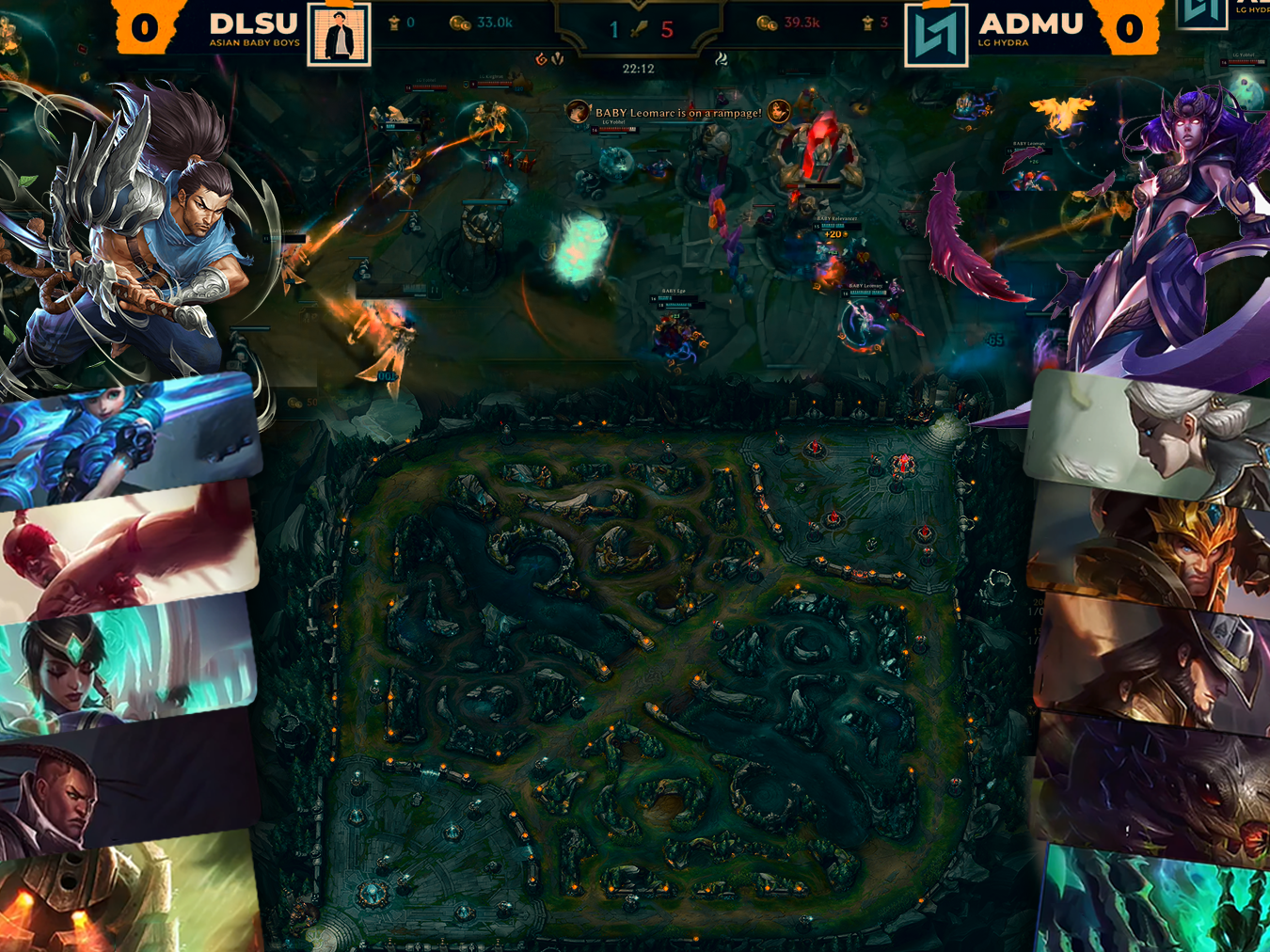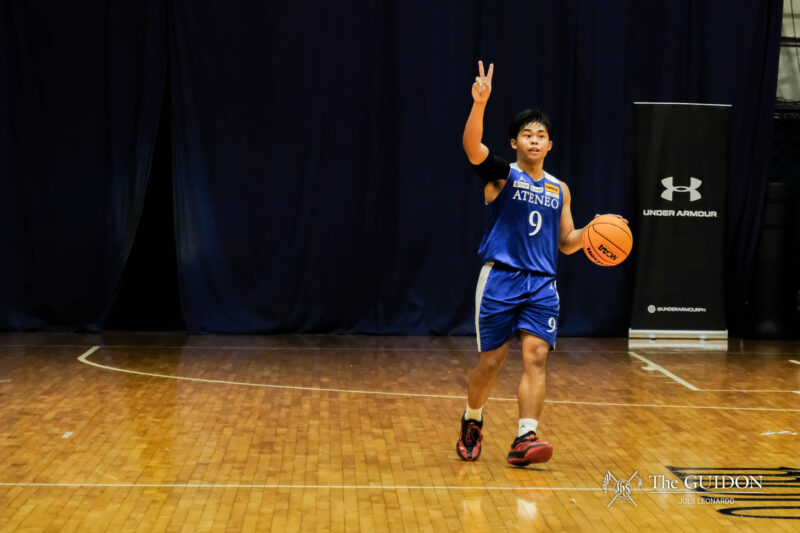“GO ATENEO, One Big Fight!” These were the words uttered by Ateneo fans during University Athletic Association of the Philippines (UAAP) events before the COVID-19 pandemic struck. In the absence of UAAP games, the local collegiate Esports scene has taken up the baton of ensuring that school spirit lives on.
Esports has replicated the energy of supporting one’s own school in traditional sports competitions. Even without knowledge of the game being played—as long as your school plays—then the support comes naturally.
Games: Into the deep end
The Philippine collegiate Esports scene currently thrives on the following games: League of Legends, Mobile Legends Bang Bang, Call of Duty Mobile, and Valorant. The first two games are multiplayer online battle arenas wherein the main goal is to destroy the main base of the opposing team, while the latter two are first-person shooters. Despite differences in mechanics and gameplay, all games require a team chemistry that greatly mirrors the energy and intensity usually associated with traditional team sports.
A crucial factor in the excitement surrounding Esports is how game developers are able to shift the course of the competitive scene, constantly making adjustments to gameplay to ensure healthy and flowing competition. As such, Esports teams usually employ the most effective tactic available strategy to win games wherein the team creates the best strategy in response to changes made by the game developers. The continuous tinkering of the games makes Esports interesting as teams need to adapt and strive to stay on top.
Just like traditional sports, Esports provides an avenue for students to showcase their school pride. The nature of the games and the way each team strives to be the best complements the energy when supporting one’s university. As a result, school rivalries—such as the unmistakable Ateneo and La Salle clashes—are now being translated from the hardwood floors to the virtual world.
The first two seasons of the AcadArena University Alliance Cup–Valorant saw Ateneo lose the championship to La Salle in the grand finals, while the revived rivalry resulted in Ateneo taking the National Campus Open – League of Legends championship. Watching the games and witnessing the student banter from different schools resemble the passionate and loud cheers usually heard in arenas is what revives the spirit of competition in the virtual world.
“There’s added pressure [if you’re playing against school rivals] because a lot of people are rooting for your school to win and I think it makes it more fun,” Josh Dinio of LG Hydra said.
Despite these games reliving the vibrant history of different school rivalries and the eagerness of students to showcase their school pride, collegiate Esports would be impossible without a proper venue. The games that teams play are only part of the collegiate Esports scene, as teams will not flourish without a proper structure behind them.
Enter AcadArena.
Sturdy support structures
Different tournaments happen every year at the collegiate level, but these tournaments are usually one-time events. Founded in 2019, AcadArena is an organization that has been developing the Esports collegiate scene by providing a platform for Esports athletes to compete. Teams generally participate in at least one tournament every semester, which helps to foster healthy competition and rivalry among schools. Despite the complexity of the games, viewers were hooked on the matches as a means to support their schools. The fans are also more engaged when rival schools compete against each other across different games.
“The best part about school rivalry from traditional sports is it’s a very fun way to pitch it into [the] collegiate side [of Esports]. You immediately have that foundation. Pretend I’m from Ateneo, whenever there is Ateneo versus La Salle—even though I genuinely know [the] La Salle team is better—I can’t vote for them,” said Ateneo alumnus and AcadArena caster Dathan Rosales.
AcadArena is vital in the flourishing of campus spirit. The organization not only provides a platform for the schools to play but has also developed a sustainable model for collegiate Esports by supporting school-organizations through its alliance program. With this program, the student-run organizations are rewarded based on their ratings. This prompts the student organizations to develop their own structure and be recognized by their own schools. The efforts of the organization were validated when different companies and Esports teams like Globe and Bren Esports supported AcadArena.
“AcadArena is an organization that played a big role in opening up the competitive collegiate scene out there, not just in Valorant. They have tournaments in all games. Other than that, they also have scholarships,” mentioned Matthew Brillantes of LG Terra.
Besides teams duking it out in the different video games, AcadArena also found a way to keep the community engaged. Students from different schools participate when AcadArena itself promotes healthy banter among the players. This back-and-forth has also worked wonders as a weapon for different schools, evident in Ateneo fans responding to an inflammatory quote by an opposing DLSU player in the NCO-League of Legends finals.
School spirit was also evident during the AcadArena Awards last February as fans from different schools were given the opportunity to vote for the community awards. These awards in themselves have become a matter of school pride for students throughout the world of collegiate Esports.
Esports and the pandemic
Filling the void left by the cancellation of UAAP games, Esports has thrived on its virtual nature that allows players and schools from all over the Philippines to easily compete online. Testament to this growth is the inclusion of teams from outside Metro Manila, like Pampanga’s Holy Angel University and Cebu’s University of San Carlos.
As collegiate Esports booms in the country, the competitive atmosphere provided by the games and the stability of AcadArena’s league structure results in the reignition of the emotions brought about by school rivalries.The nature of the close games not only resembles the energy of traditional team sports, but brings with it Esports’ own rendition of what it means to represent your school.
Potentially a source of school pride for years to come, Philippine collegiate Esports is on the verge of a golden age in popularity. With the foundations set, Esports is on track to becoming a huge part of school spirit, regardless of when traditional sports make an eventual comeback.







